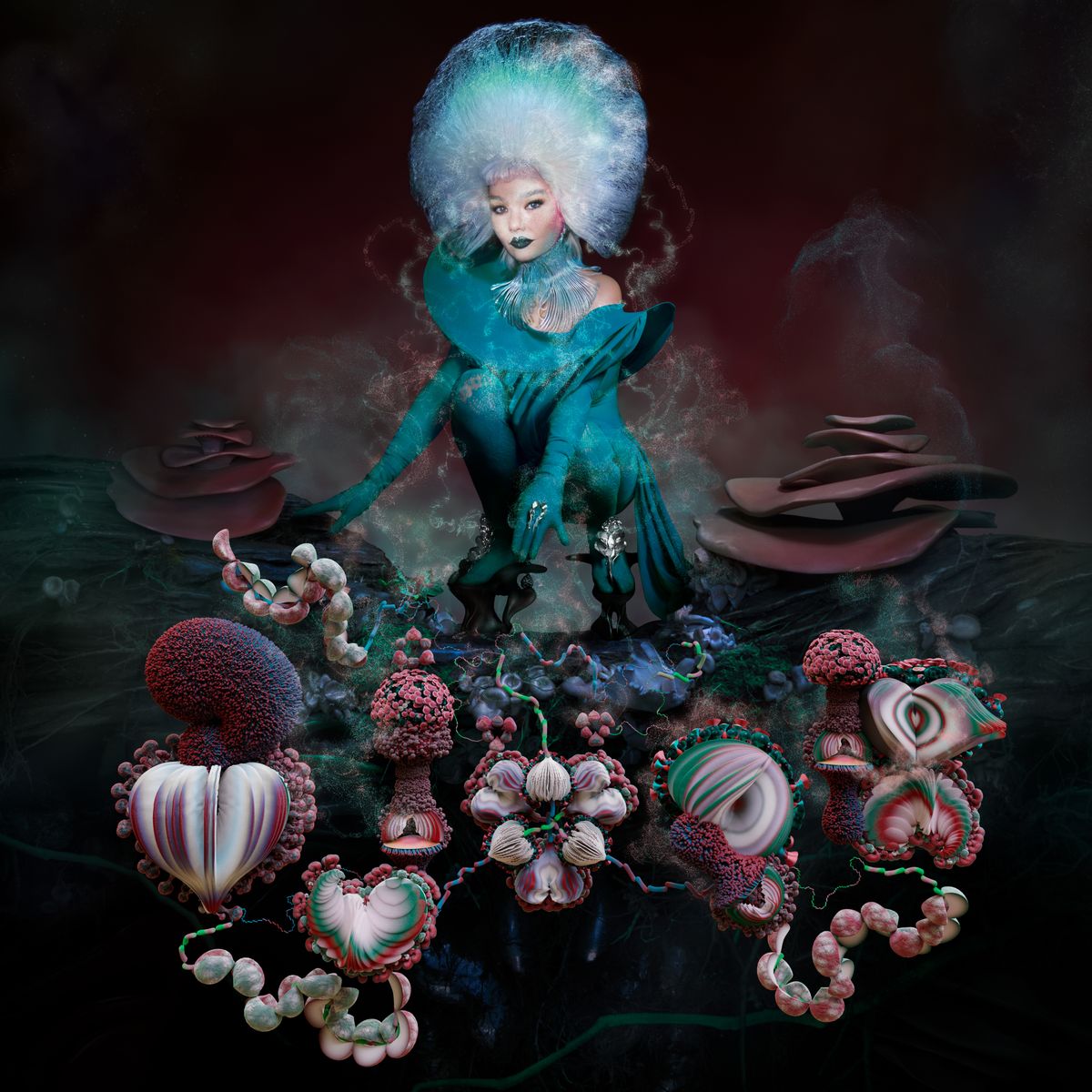As ‘Fossora’ makes clear, Björk is an Earthling

Her music still teems with alien vim, but if you’ve ever seen a David Attenborough documentary, you know that Björk belongs here. For nearly three decades, she’s been voicing the emotions that shape our humanity: desire, courage, grief, love – all while evoking the most fantastic extremities of this pale blue dot. Her melodies can feel as volatile as splashy magma or as delicate as a bird of paradise doing a courtship shimmy, but for all of their weirdness and wonderment, a Björk song is only ever as strange as the natural world.
Her 10th album, “Fossora,” pushes those terrestrial themes forward and downward with lyrics about mushrooms, minerals, moss and mud, using the ecology below as a metaphor for groundedness, rootedness, what’s been buried beneath our feet and what’s still alive down there. She lands the message, sometimes wordlessly. Multi-tracking her voice to create a mini-choir of Björks during “Mycelia,” she builds a nonverbal a cappella collage to evoke the subterranean fungi network that the song is named after – an ode to hidden connection, or maybe even a eulogy for underground culture in a digital space that only offers otherground.
“Fungal City” is somehow a love song, a duet with the Baltimore-raised singer Serpentwithfeet, with lyrical swatches that read something like a Victorian diary entry. “His vibrant optimism happens to be my faith, too,” Björk sings guardedly on an otherwise giddy stroll through the woods, her duet partner depicting another side of her consciousness, twisting his voice into curlicues of yearning. In the canopy overhead: chirpy clarinets, windy strings, clattering cymbals, a rhythm pattern made of synthetic thunder.
The forest is vast and deep. On “Sorrowful Soil,” a remarkable tribute to her late mother, Björk vocalizes alongside a large choir and a lonely bass line, steering an asymmetrical melody in unexpected routes, eventually delivering one of the most disorienting lines to ever form in her mouth: “In a woman’s lifetime, she gets 400 eggs, but only two or three nests.” Is anything stranger than grief?
So this is mourning music, and connecting music, and cautiously falling-in-love music – but it’s all walking music. Björk has often explained that her strongest melodic ideas arrive when she’s on some sort of amble, and with this album, it’s clear that she isn’t taking laps around the track of the local high school. “Fossora” is like navigating a forest, taking uneven steps across pillowy moss and knotty roots, feeling familiar in your surroundings but unsure of your direction. And in the moments when it starts to feel like dance music – during the respective thwacks of the album opener “Atopos” and the title track – you might start to think of dancing as a journey, or of walking as a celebration.
Mind the setting, though. We’re not hiking through some dreamtime rave cave in the fifth dimension. If we want Björk’s desire-courage-grief-love to help teach us who we ultimately are – as individuals, as a species – we need to remember that her music takes place here on Earth, our only home, where the stakes are high and rising.